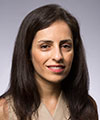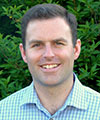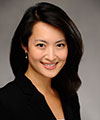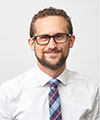New Faculty 2015-2016

Niaz Abdolrahim
Assistant Professor of Mechanical Engineering
Niaz Abdolrahim joined the Department of Mechanical Engineering in July 2015 as assistant professor. She recently completed her postdoctoral appointment at the Massachusetts Institute of Technology’s Department of Materials Science and Engineering, where she investigated the computational modeling of interface structure and interface-defect interactions in metallic films.
Abdolrahim is experienced in solid mechanics, continuum mechanics, plasticity, crystal plasticity, finite element methods (FEM), molecular dynamics simulations, Monte Carlo methods, nanoscale metallic composites, thin films, nanoporous materials, multiscale modeling of materials, computational solid mechanics, and mathematical modeling.
Abdolrahim received her PhD in mechanical engineering from Washington State University. Her research was on the multiscale modeling of dislocation mechanisms in nanoscale metals, with scales ranging from the atomistic, to crystal plasticity, to the continuum level via molecular dynamic simulations. Her work on computational materials science spans the nanomechanical properties of modern engineering materials where defects and interfaces control essentially the material macroscopic response.
Among other awards, in 2013 Abdolrahim received the James Clerk Maxwell Young Writers prize from the Philosophical Magazine and the Henry DeWitt Smith Scholarship from the Minerals, Metals & Materials Society. She has served as guest editor for the Journal of Nanomaterials and as discussion leader of a Gordon Research Conference in July 2014. She has published in more than 30 journals including Philosophical Magazine, Thin Solid Films, International Journal of Plasticity, and Computational Materials Science. She has participated in a variety of outreach activities such as a nanotechnology workshop for high school students.

Thomas Howard
Assistant Professor of Electrical and Computer Engineering and of Computer Science
In January 2015, Thomas Howard joined the faculty of the Department of Electrical and Computer Engineering and the Department of Computer Science as assistant professor. He is also a member of the Goergen Institute for Data Science and holds a secondary appointment in the Department of Biomedical Engineering.
Most recently, Howard was a research scientist at Massachusetts Institute of Technology Computer Science and Artificial Intelligence Laboratory in the Robust Robotics Group. Prior to that, he was a research technologist at NASA’s Jet Propulsion Laboratory ( JPL) in the Mobility and Robotic Systems section and a lecturer in mechanical engineering at the California Institute of Technology (Caltech).
Howard earned a PhD in robotics from the Robotics Institute at Carnegie Mellon University in 2009 and BS degrees in electrical and computer engineering as well as mechanical engineering from the University of Rochester in 2004.
Howard’s research interests span artificial intelligence, robotics, machine learning, signal processing, and human-robot interaction. His work focuses on improving the optimality, efficiency, and fidelity of models for decision making in complex and unstructured environments with applications to robot motion planning and natural language understanding. He has applied his research to numerous robots, including planetary rovers, autonomous automobiles, mobile manipulators, robotic torsos, and unmanned aircraft.
Howard was a member of the flight software team for the Mars Science Laboratory, the motion planning lead for the JPL/Caltech DARPA (Defense Advanced Research Projects Agency) Autonomous Robotic Manipulation team, and a member of Tartan Racing, which was the winner of a DARPA Urban Challenge.

Catherine K. Kuo
Associate Professor of Biomedical Engineering
Catherine Kuo recently joined the University of Rochester as associate professor at the Hajim School’s Department of Biomedical Engineering and at the Medical Center’s Center for Musculoskeletal Research.
Prior to this, Kuo was at Tufts University, where she was an assistant professor in the Department of Biomedical Engineering and in the Program of Cell, Molecular, and Developmental Biology within its Sackler School of Graduate Biomedical Sciences. She was also a visiting scientist in the Department of Chemical Engineering at Massachusetts Institute of Technology.
Kuo received her BSE in materials science and engineering and PhD in biomaterials and macromolecular science and engineering from the University of Michigan. She conducted her postdoctoral training at the National Institutes of Health (NIH), specifically within the Branch of Cartilage Biology and Orthopaedics of the National Institute of Arthritis and Musculoskeletal and Skin Diseases.
Her research explores musculoskeletal tissue mechanobiology and developmental biology in order to inform tissue engineering and regenerative medicine approaches. A specific focus of her work is to characterize the mechanical and biochemical microenvironments of embryonic, healing, diseased, and aging tissues to provide design criteria for biomaterials and bioreactor cultures that guide stem cell differentiation and neo-tissue formation.
Kuo is the recipient of a National Science Foundation (NSF) CAREER Award and a March of Dimes Basil O’Connor Starter Scholar Research Award. She was invited by the National Academy of Engineering as one of only 15 outstanding U.S. engineers under the age of 45 to participate in the 2013 German-American Frontiers of Engineering Meeting. She reviews for the NIH, NSF, and other agencies. She also serves on the advisory council for the International Society of Ligaments and Tendons and on the editorial review board for the Journal of Orthopaedic Research.

Andrew White
Assistant Professor of Chemical Engineering
Andrew White joined the University of Rochester in January 2015 as assistant professor of chemical engineering. He graduated from Rose-Hulman Institute of Technology in 2008 with a BS in chemical engineering. At Rose, he spent a year studying at the Otto-von Guericke Universität in Magdeburg, Germany. While there, he worked for six months in a microbiology lab at the Max Planck Institute for Dynamics of Complex Technical Systems.
White completed a PhD in chemical engineering at the University of Washington in 2013. His thesis was on the creation of non-fouling surfaces with computational modeling. From 2013 to 2014, White was a postdoctoral fellow at the University of Chicago’s Institute for Biophysical Dynamics. At Chicago, he developed new methods for mixing simulations and experiments.
At Rochester, White continues his modeling work of combining simulations and experiments in peptide self-assembly and glassy liquid crystals. Some of the tools he uses include molecular dynamics, dynamic graphical models, peptide synthesis, and self-assembly characterization. His research involves computer- aided design of materials.
White is also an accomplished artist. His work appeared in Science and Nature in 2010 and at the Visualization Center Museum in Sweden in 2013.
